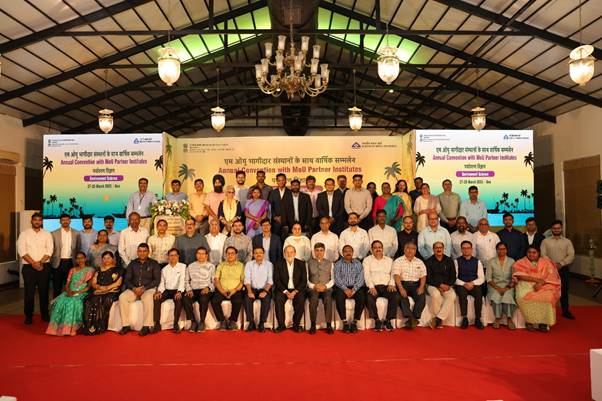Goa: The Bureau of Indian Standards (BIS) convened its Annual Convention for Deans and Heads of Departments (HoDs) from partner institutions focused on Environment and Ecology, emphasizing the theme “Sustainability through Standards.” The two-day event saw participation from 45 delegates representing 32 institutions alongside senior BIS officials, fostering discussions on research-driven standardization for a sustainable future.
In his welcome address, Praveen Khanna, Deputy Director General (Southern Region), highlighted the crucial role of academic institutions in developing national and international standards.
Sanjay Pant, Deputy Director General (Standardization-II), underscored the fundamental role of standardization in addressing sustainability challenges. “Standardization is the foundation of sustainability. By collaborating with academia, we can develop research-driven standards that address environmental challenges and create a lasting impact for future generations,” he stated.
A significant development highlighted during the convention was the establishment of the Environment and Ecology Department (EED), consolidating various BIS standardization activities under a dedicated division. Since its inception, EED has introduced nearly 100 standards through nine specialized committees.
The convention featured comprehensive technical sessions on the ongoing initiatives of the Environment and Ecology Division Council (EEDC). These initiatives span eight key areas: Air Quality Management, Water Quality Management, Waste Management, Environmental Monitoring, Sustainable Habitat, Sustainable Agriculture, Circular Economy, and Biodiversity & Ecosystem Conservation.
Distinguished speakers, including Dr. Alok Sinha (IIT Dhanbad), Dr. Anju Singh (IIM Mumbai), and Shabnam Bassi (GRIHA Council), emphasized the importance of bridging gaps in existing standards to support national climate initiatives such as the National Action Plan for Climate Change (NAPCC).
Participants engaged in hands-on evaluation of standards through the ‘Know Your Standards’ feature on the BIS Care App, identifying new areas for development in Waste Management & Recycling, Water Quality & Management, Sustainable Construction & Materials, Environmental Monitoring & Pollution Control, Green Energy & Climate Change Mitigation, Health & Safety Standards, and Campus & Industrial Sustainability.
On the second day, delegates witnessed a live demonstration of BIS’s digital solutions, including the Academic Dashboard, which enables institutions to access standards, submit research projects, and contribute to technical committees. BIS also showcased tools for downloading and commenting on draft standards, encouraging broader participation in international standardization.
A special session led by Ritesh Baranwal, Director (Finance), BIS, explored the intersection of sustainability and financial frameworks. His presentation highlighted how standardization can bolster sustainable finance initiatives, aligning economic growth with environmental responsibility.





